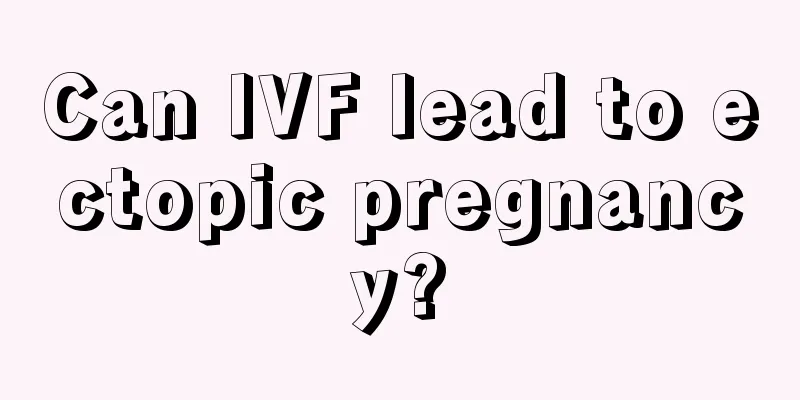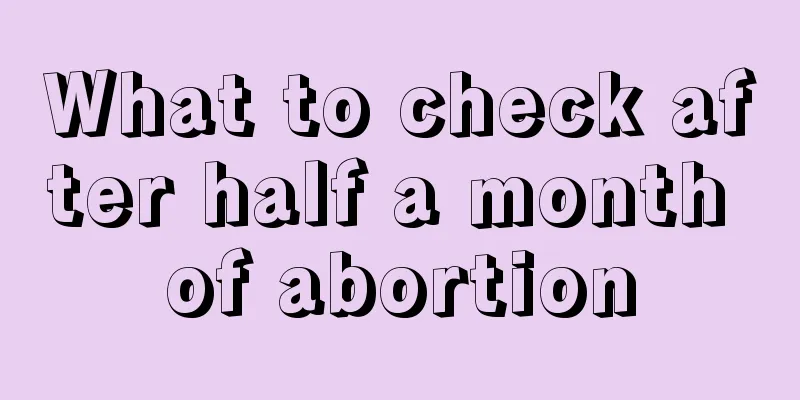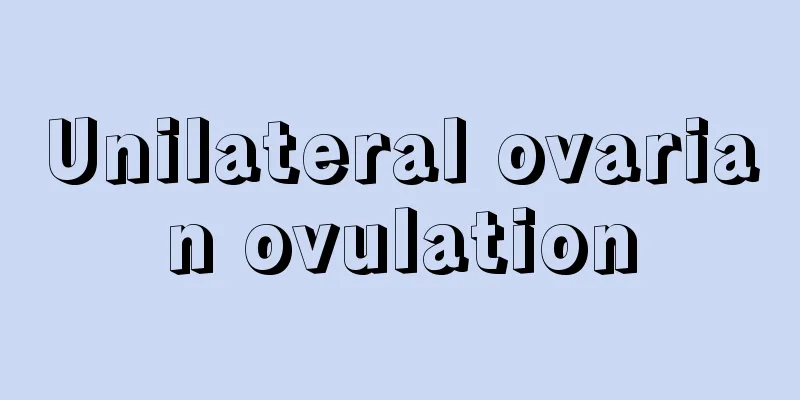Can IVF lead to ectopic pregnancy?

|
For a couple to have a baby normally, many conditions must be met. Various reasons, such as problems with the woman's fallopian tubes or problems with the man's normal sperm discharge, will affect normal pregnancy. In order to solve these complex problems, very high-tech in vitro fertilization has emerged. However, in vitro fertilization also has risks. For example, in vitro fertilization may also lead to ectopic pregnancy. Can IVF lead to ectopic pregnancy? Now that medical technology is constantly developing, we can change our approach to fertility issues, but I think the problem is still not that simple. Now people's minds are still not open to a certain level, so these technologies are only used as a last resort. Next, let’s find out whether IVF will lead to ectopic pregnancy? Medical explanation: ectopic pregnancy refers to an abnormal pregnancy process in which the fertilized egg implants and develops outside the uterine cavity. The main cause of the disease is inflammation in the fallopian tube lumen or its surroundings, which causes poor patency of the lumen and hinders the normal operation of the fertilized egg, causing the fertilized egg to stay, implant, and develop in the fallopian tube, and finally leads to miscarriage or rupture of the fallopian tube pregnancy. In vitro fertilization refers to a technology that uses artificial methods to remove eggs and sperm from the human body and fertilize them in vitro. After they develop into embryos, they are transplanted back into the mother's uterus to achieve the purpose of conception. Ectopic pregnancy may occur with natural conception, and IVF is no exception. There are two situations in which ectopic pregnancies occur during in vitro fertilization. One is that after the embryo is transferred into the uterine cavity, it usually takes three to four days to find a good implantation site, and then the embryo implants and clinical pregnancy occurs. If the embryo moves into the fallopian tube during this period, it will cause an ectopic pregnancy. Another possibility is that the embryo may be injected into the fallopian tube during the transfer process, causing an ectopic pregnancy. The occurrence of ectopic pregnancy in test tube babies is also related to many factors, such as: the depth of the transfer tube into the uterine cavity during embryo transfer, the amount of liquid in the transfer tube, the injection speed during transfer, the number of transplanted embryos, the patient's position after transfer, etc. Of course, it also depends on the doctor's level and technical level. It can be seen that it cannot be said that IVF can prevent ectopic pregnancy, but the chance of ectopic pregnancy due to IVF is lower than that due to natural conception, about 3%. |
<<: How does hcg rule out ectopic pregnancy?
>>: Who is prone to ectopic pregnancy?
Recommend
How to treat diarrhea during menstruation
Diarrhea during menstruation is a problem that ma...
What is the cause of the yellow-green, sticky, odorless vaginal discharge?
We all know that leucorrhea is a kind of vaginal ...
Vitamin D is praised again! Research shows that it is a great helper for immunity
This article was reviewed by Pa Li Ze, chief phys...
Hidden dangers and high costs: Children's medication must not "run a yellow light"
Medication errors are very dangerous for children...
Can endometrial thickening be treated?
Many women suffer from diseases such as endometri...
Should I steam eggs with cold water or boiling water? How can I steam eggs without them smelling fishy?
Steamed eggs are salty and fresh, rich in nutriti...
Are hyperthyroidism symptoms contagious?
Hyperthyroidism is a common disease in daily life...
It's Okay to Be Psycho When will it be broadcast? Who are the male and female protagonists of It's Okay to Be Psycho?
Kim Soo Hyun hasn't acted in any new dramas s...
Breast autologous fat plastic surgery
What women care about most in life is their figur...
Precautions after egg retrieval surgery
After a woman starts her menstrual period, her ut...
What are the prenatal symptoms?
The birth of a child is a surprise for every fami...
Eating vegetables is good for children's health
Early spring is the time when children are most s...
Working for you 24 hours a day, just because you are its whole world...
"Eat cute platelets to grow bigger" You...
Does vinegar kill mold?
Vinegar is an indispensable condiment in cooking....
What are the breast changes in early pregnancy?
There are always some symptoms in the early stage...









